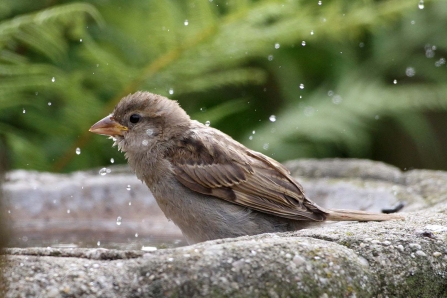Nottinghamshire Wildlife Trust, which cares for Attenborough Nature Reserve as well as dozens of other sites across the county covering over 1000hectares, has issued warnings over both fire and water linked to the current heatwave.
Last week, staff and volunteers had to respond to a report of a fire smouldering at its much loved Bunny Old Wood (west) nature reserve off the A60 at Bunny Hill. This came two weeks after another incident at the wood, famous for its displays of bluebells, required the attendance of Nottinghamshire Fire & Rescue service.

